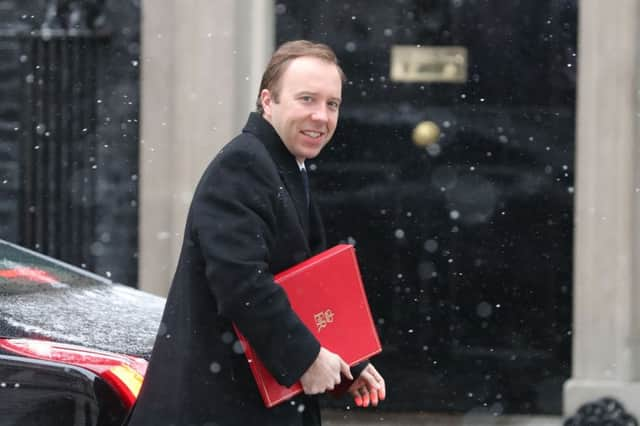Press standards inquiry axed by UK government ministers


Culture Secretary Matt Hancock told the House of Commons that reopening the “costly and time-consuming” inquiry – which reported on press regulation and ethics in 2012 – was not “the right way forward”.
Mr Hancock also announced that the government will not put into effect a controversial measure, which would have required media organisations to sign up to a state-backed regulator or risk having to pay legal costs in both sides of a libel case, even if they won.
Advertisement
Hide AdMinisters will seek to repeal the measure, contained in Section 40 of the Crime and Courts Act, “at the earliest opportunity”, he told MPs. Labour shadow culture secretary Tom Watson described the decision not to go ahead with the second part of Leveson as “a bitter blow to the victims of press intrusion”.
Announcing the original inquiry in 2011 in response to a wave of public anger over alleged phone-hacking by the now-defunct News Of The World, then-prime minister David Cameron said that it would be in two parts.
The first would look at the culture, practices and ethics of the press, while the second – which could not begin until after all criminal investigations were concluded – would enquire into “unlawful or improper conduct” within media organisations and their relations with the police.
But Mr Hancock said there had been “significant progress” in the practices of the press and the police, including by the creation of the new Independent Press Complaints Standards Organisation, since Sir Brian Leveson’s report in 2012.
A large majority of those responding to a consultation launched by his predecessor John Whittingdale in 2016 opposed the implementation of Leveson II, he said.
Telling MPs he was formally closing the inquiry, he said that priority should be given to dealing with the challenges of the modern media landscape, such as the rise of clickbait, fake news and social media.
Advertisement
Hide AdScottish Newspaper Society director John McLellan said: “Although Section 40 would only have applied in English courts, its effect would have been felt by those Scottish titles owned by UK-wide publishers and the principle of using a punitive costs regime to force publishers to join a state-backed regulator is being extended by Labour and Lib Dem peers to UK-wide data protection legislation.
“Imposing a system whereby publishers who refuse to join a state-backed regulator are punished by having to meet all costs of civil court action even if they win, flies in the face of natural justice and is little more than statutory blackmail. It is vital that the Lords amendments to the Data Protection Bill are thrown out as well and we welcome the SNP’s clear opposition to statutory incentives.
“We also welcome the end of the Leveson Inquiry, which would have cost millions more on top of the £6 million already spent on part one.”